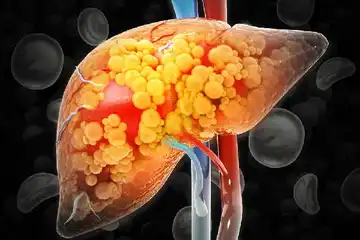What is Liver Transplant?
Liver transplant is an operation wherein the damaged liver of a patient, which is non-treatable with any drug or therapy, is completely or partially removed and replaced with a healthy liver.
Why is it done?
There are several symptoms that indicate the malfunctioning of the liver, requiring urgent medical attention for the person. Some of the early and non-distinctive symptoms that may be due to liver failure are
- Nausea
- Diarrhoea
- Fatigue
- Sudden weight loss
- Constant pain in the abdomen area (Read more: Stomach pain causes)
- Swelling in the abdomen and legs
The distinctive symptoms include
- Intestinal Bleeding – The liver is responsible for the effective removal of ammonia and bilirubin from the bloodstream. In case of liver failure, the membranes of liver blood vessels become thin and the organ fails to eliminate the degrading products, which results in an increased pressure. The thin and small veins or the varices are unable to hold onto the blood flow, causing rupture and flow of blood through the intestinal tract. A gastrointestinal bleeding can be very serious and life-threatening.
- Fluid Retention – A very vital function of the liver is to reabsorb certain fluids back into the bloodstream. Malfunctioning or failure of the liver leads to reduced production of albumin and other proteins, which in turn disrupts the oncotic pressure and prevent the loss of fluid from the bloodstream. The fluids then escape and accumulate inside the body in different parts leading to hydrothorax (chest) or pedal oedema (legs). It is not life threatening but requires to be drained out of the body.
- Jaundice – In case of a liver failure, the liver is unable to eliminate certain metabolic products from the bloodstream. Bilirubin is one such product, which is produced from broken down haemoglobin, and as the level of bilirubin increases, the body starts acquiring a yellow shade. This condition is commonly referred to as jaundice and can further cause high fever and nausea.
Who needs it?
Liver transplant is performed only in the most advanced cases of liver failure that cannot be treated with any medication. Common causes of liver failure are listed below:
- Cirrhosis –The liver deteriorates due to various diseases and starts to malfunction in cirrhosis.
- Biliary Atresia – It is a rare condition in children and new-borns wherein the bile duct between the liver and the small intestine is blocked or absent, calling for an urgent transplant.
Other Conditions
How is it performed?
The procedure of a liver transplant requires a surgery.
A liver transplant is done according to the condition and stage of the patients’ liver malfunctioning. Healthy livers are generally got from an organ bank which keeps livers after the death of the enrolled donors. In certain cases, healthy people or relatives donate a part of their liver for the patient in exchange of money or out of concern.
The failed liver is first removed from the patients’/recipients’ body, and when the blood flow is stabilised with machines, the healthy liver resected from the donor is placed back into the recipient. The procedure requires critical and extensive care and lasts up to 5-6 hours. The patient is provided with certain medicinal support to help the body accept the foreign organ.
The rate of a successful transplant is very high, but the patient requires suitable attention and care thereafter.

 OTC Medicines for Liver transplant
OTC Medicines for Liver transplant















